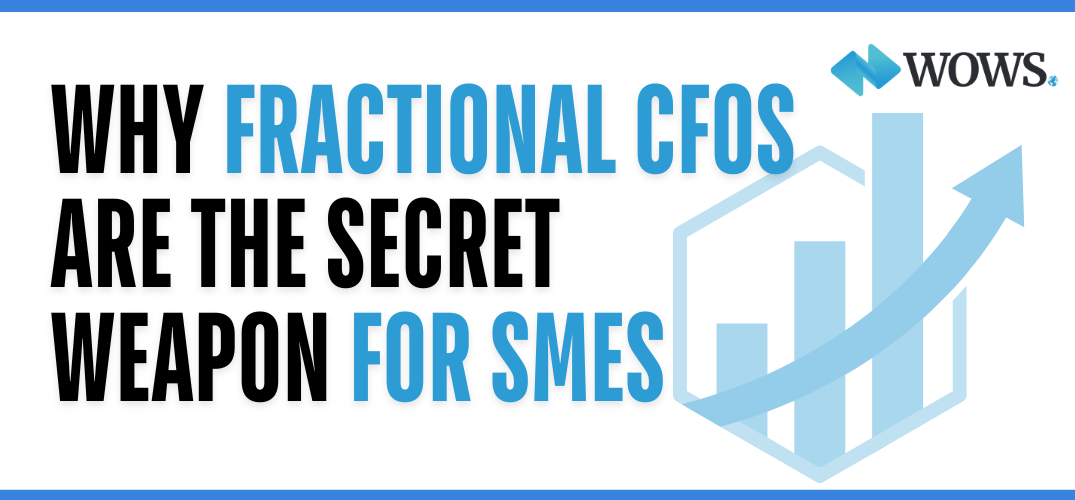Startups: The Ultimate Guide to Term Sheets - Part 1
Startup Term Sheet Startup Founders

The importance of a term sheet cannot be underestimated. Any founder who is being offered funding from a professional investor or venture capital firm will find a term sheet attached.
While the thought of receiving those much-needed funds will naturally excite, caution and careful consideration should be uppermost in your decision-making process.
Before final acceptance of any funding offer, founders must understand exactly what terms are involved and what they are agreeing to.
Because of this, WOWS Global is putting down a 4-part series on exactly what term sheets are and why they are so important.
In part 1 we will explain:
- What a term sheet is.
- What is behind term sheet negotiation?
- How startup founders should define their priorities
- Why investor research must be carried out before committing.
What is a Term Sheet?
A term sheet is classed as a document that, in principle, sets down the agreed transaction terms. During negotiations between a startup and investor(s), the terms of this transaction are agreed upon and signed at the beginning of their agreement.
With regard to legality, term sheets are designed to evidence serious intent. However, in general, they are not legally binding.
The term sheet is a document outlining the financial terms of an investment offer. It is typically presented by angel investors, venture capitalist firms, or other investors after a successful pitch meeting. From there it is down to the founder(s) to decide whether or not they should accept the given terms or for them to make a counteroffer.
In essence, the signing of a term sheet between investors and the startup should be viewed as the beginning of a long-term and fruitful relationship.
Any agreed term sheet should be viewed as a long-term commitment
Accepting the agreed terms should be viewed as a major commitment, one with potential long-term repercussions.
That is because any founder securing a term sheet will have been involved in a lot of processes from pitching to building a healthy investor relationship. The result is obviously good news because it gives the financing required to grow your business. However, for the funds given, returns are expected.
Founders need to be aware of what they are putting on the line when signing a term sheet agreement. This means careful review, understanding of ALL clauses, and a thorough evaluation of the terms presented must be undertaken before committing.
As mentioned, term sheets are considered non-binding unless otherwise specified. However, once signed by both parties it is difficult to rescind. Founders need to be aware that trying to renegotiate or cancel terms once signed is likely to halt the proposed investment, often permanently.
Founders at the early seed round and Series A funding rounds will often find that the term sheet involved runs to just a single page with a summary of the investment agreement terms.
Should both parties accept what has been agreed in that summary then the term sheet becomes the template upon which legal teams will use to draft a binding agreement. In some cases, this could run to 100+ pages!
What is Behind Term Sheet Negotiation?
As a founder your goal is to raise needed capital while retaining the upside of any deal, keeping control, and reducing the downside risks as far as possible.
A term sheet is really about dividing the positives and the risks between your startup and the involved investor(s). To achieve this there are a number of standard clauses which are generally included in a term sheet.
It should be understood that individual situations and the clauses stated will differ. However, as a founder, understanding these standard clauses will mean that you are taking a very positive step toward making a decision that is right for you and your venture.
A term sheet should be viewed as one of the final steps of a founder's fundraising process. Because you have got this far it means you have already won over the investor(s) involved. This means it is now time for you to decide whether the conditions being set for accepting their funding are acceptable.
Clearly, you do not want to put your investor relationship in jeopardy, but you must put your company’s interests first. With that in mind, you should not feel pressure to accept what is offered immediately.
While you do not want to delay your decision too long you should not make a decision with undue haste. Take time out to reflect on exactly what is on offer and how it will affect your startup both in the short term and the long term.
Through careful consideration rather than a knee-jerk acceptance you will be in a position to make a far more informed final decision on what is being offered.
To achieve this you should….
Define your priorities
As a founder, you should define your priorities. This is something that should be carried out before you speak with investors. Set sufficient time aside to put down what your dream financing deal would be.
It may not be the case that you get everything you want. However, establishing things that are most important to you ahead of time will put you in a far stronger position to evaluate term sheets when they do come in.
To help you define your priorities, here are some important questions to ask yourself:
- What do you feel a realistic valuation of your company is?
- Do the investor(s) involved have objectives that are aligned with yours?
- How important is it for you to maintain control of your business?
- How much control of your business are you willing to give up?
- Do the investor(s) involved have a long-term perspective of the business sector you are in?
- How can the concerned investor(s) help you to scale as a founder?
- Will the investor(s) be supportive if you decide to pivot?
- What sort of terms are the top priorities for seeing the deal go through?
- What do you see as being serious deal-breakers?
While considering the above and any other priorities a founder needs to remember that building a company is a long-term proposition. This means the investor(s) you partner with should be ones you have good synergy with.
It also means that you should be willing to stand up for the issues that you see as being the most important. To achieve that you need to show you have a broad understanding of critical issues.
It is quite common for new founders to be uncertain of the terms they should prioritize. If that is you, do not try to work everything out on your own. Reach out to an experienced and trusted startup advisory team who will assist you in identifying those terms that will be most beneficial to your venture and future success.
Carry out Investor Research Before Committing
It can be very tempting for a founder to simply go with investors who offer the biggest check. Tempting it may be, but this should not be the sole reason for taking investor funds.
What is important is that you partner with an investor who is willing to assist positively. Choosing this type of investor will help to increase your chances of healthy growth and long-term success.
Take time out to research the investor(s) background. You need to understand what their proposed involvement will be and how proactive they intend to be. If they can offer value beyond cash this can give your startup a crucial advantage.
Investors that can assist with such things as helping to recruit a go-to-market team, offering feedback and advice in areas they are experienced in, and adding additional contacts to help your startup grow can prove invaluable.
To get an insight into an investor profile it will pay you to get in touch with existing founders in the investors' portfolio. When you establish contact, ask these founders such things as:
- What is the investor like to partner with?
- Have these founders asked for assistance? If so, what were the results?
- How did the investor react when things were not going according to plan?
- Would the founder in question work with this investor again?
It needs emphasizing again that although the amount of funding being offered is extremely important to startups this should not be the only deciding factor. Founders should be looking at investors that can add value in other areas as well as providing funds.
Reach out for Essential Assistance
The above Part-1 of our 4-part article series on the Ultimate Guide to Term Sheets from the highly experienced team at WOWS Global is just the beginning.
Part 2 will address the different types of shares involved and the beginning of the term sheet key terms and clauses explanations (these will be continued in Part 3 of our series).
WOWS Global fully understands the need and importance a founder attaches to securing vital funding. We are also aware that before acceptance of any term sheet, careful review and consideration are a must.
This is where WOWS is ready and willing to assist. We have a vast knowledge of the startup world and can provide founders with a unique insight into funding and exactly what a provided term sheet really means to you and your company.
If you would like to find out more about the comprehensive one-stop-shop startup assistance we can offer please do not hesitate to reach out to us for an initial no-obligation discussion at:
Related Posts
-

Term Sheet Ultimate Guide to Term Sheets <em>Term Sheet Negotiation(s)</em> Startup & Venture Capital
Term Sheet 101 (2025 Edition): Clauses, Red Flags, and Negotiation Tactics
A fast, founder-friendly breakdown of the clauses that matter in 2025 liquidation preferences, anti-dilution, pro-rata, ESOP, board, and information rights, plus negotiation do’s/don’ts and model scenarios. Close your next round with clean terms and fewer surprises. -

Startup Startup Growth Founder Health Habits
Startup Growth and the Surprising Power of Sleep: What the Data Says About Founder Health Habits
Forget the hustle myth. Founders who sleep smarter, not less, are scaling faster. The data reveals surprising links between sleep, wellness, and startup success. -

Financial mistakes startup Fractional CFO
Financial Mistakes That Hurt Businesses—Startups & SMEs Alike
Many startups and SMEs unknowingly make financial mistakes that hurt profitability, cash flow, and long-term success. From misinterpreting cash in the bank to scaling without financial planning, these pitfalls can be costly but avoidable. Discover the most common financial mistakes and how to fix them in this guide by WOWS Global. -

Startup MVP Lean Startup Feedback
The MVP: Turning Bare Bones Into Billion-Dollar Dreams (Or a Glorified Prototype)
The MVP (Minimum Viable Product) is your scrappy, bare-bones version of your grand vision. Learn how to strike the right balance between too minimal and too polished while preparing for an MVP launch in this startup guide. -

Southeast Asia Startup Ecosystem
Exploring Southeast Asia's vibrant Startup Ecosystem
Southeast Asia is home to a bustling startup ecosystem that is rapidly evolving and capturing the attention of investors and entrepreneurs alike. With its thriving economies, growing middle-class population, and increasing internet and smartphone penetration rates, the region offers immense potential for innovation and business growth. -

Term Sheet
5 Red Flags in Term Sheets That Every Founder Should Be Aware Of
A term sheet is a non-binding agreement that outlines the basic terms of an investment deal. It’s like a blueprint for the actual contract that will follow if both parties agree to move forward.
